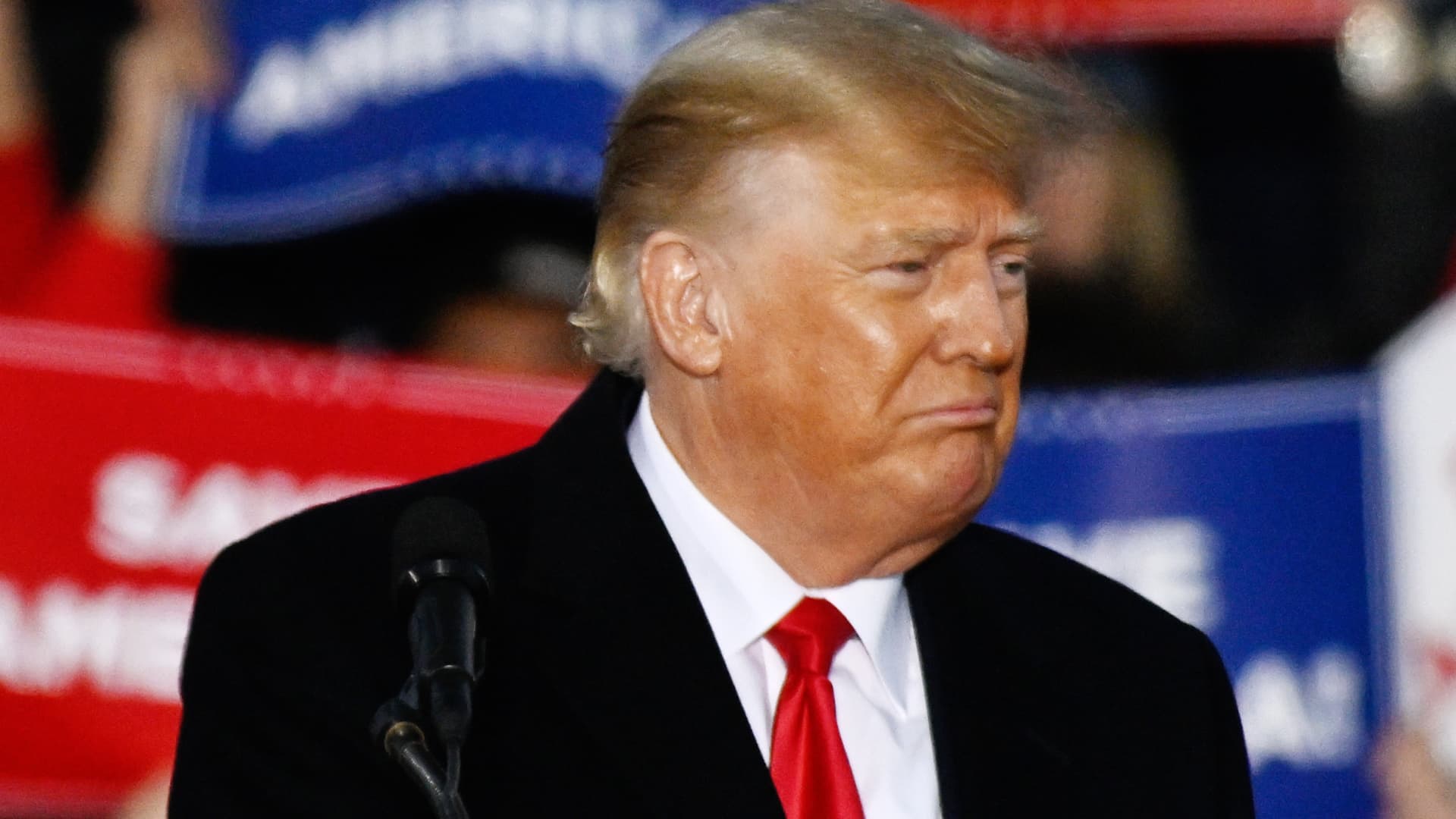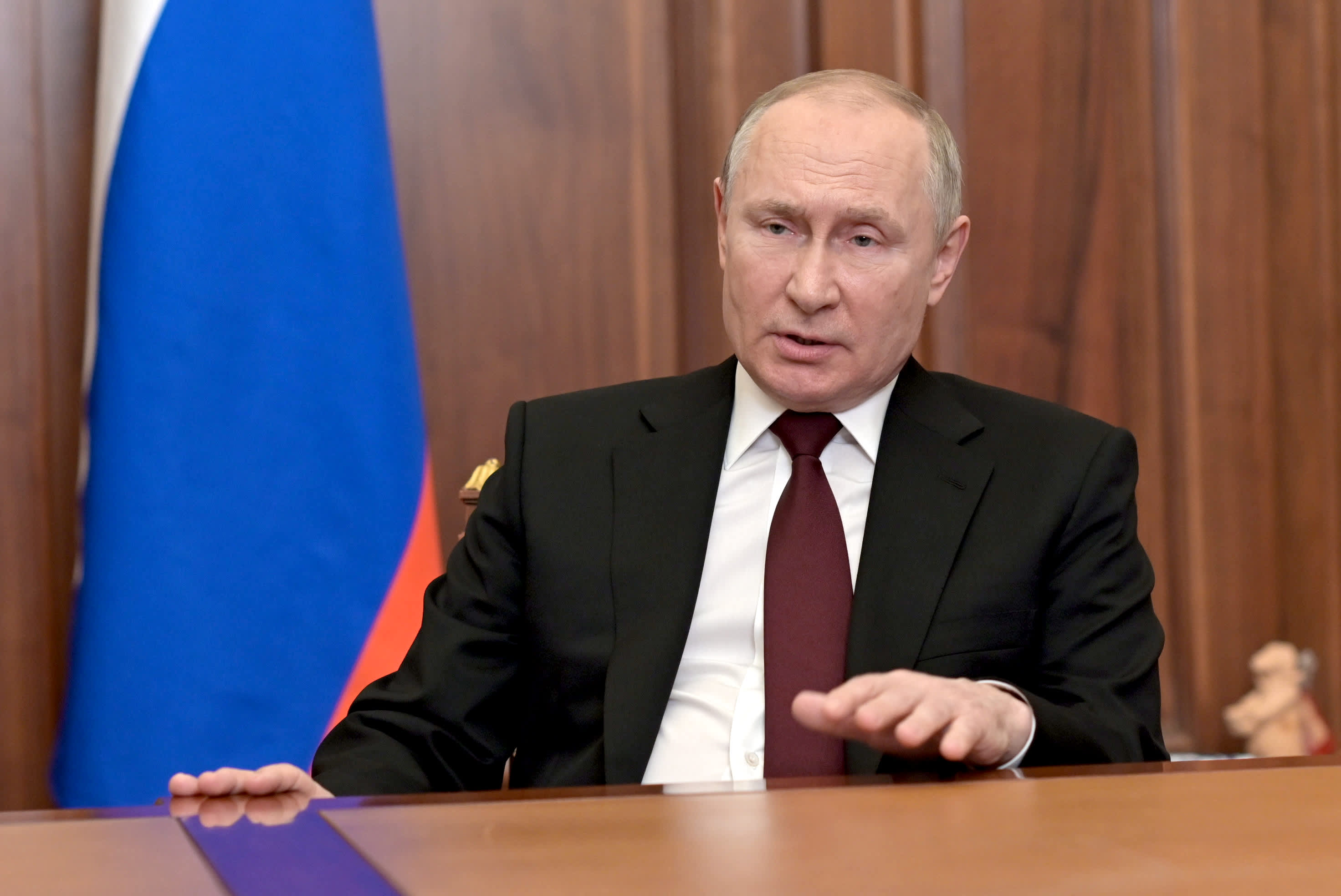Russian stocks may be 'essentially worthless,' MSCI research suggests
Russian stocks may have "no value" compared to the prices listed on the Moscow Exchange, new research from MSCI has suggested.

Russian stocks may have "no value" compared to the prices listed on the Moscow Exchange, new research from MSCI has suggested.
Moscow ceased trading after stocks capitulated on the back of Russia's invasion of Ukraine, reopening a month later after the exchange's longest shutdown since the fall of the Soviet Union. The Moscow Exchange also had its recognized status revoked by many international powers.
The MOEX Russia Index is down more than 36% year-to-date as of Friday afternoon, and international investors in Russian securities have endured restrictions in managing and valuing their positions since the war began.
Based on a model that links stocks and bond markets, MSCI on Friday said the market for credit-default swaps suggests that Russian stocks "may be essentially worthless" in contrast to the prices listed on the exchange.
Credit-default swaps are derivatives that enable investors to swap their credit risk on a company, country or other entity with that of other investors. Lenders acquire CDSs from investors under the agreement that the investor pays the lender if the borrower defaults on its debt obligations.
"The incongruity between the CDS market and the listed prices of Russian stocks may be due to a combination of technical-default fear, failure of the CDS auction mechanism, restrictions on trading CDS linked to the securities of sanctioned companies and a lower perceived value of Russian equity for CDS investors," MSCI Senior Associate Zoltan Sass added in Friday's report.
The model works on the assumption that if a firm's stock price goes to zero, it will choose to default on its debt. In this framework, MSCI explained, a company's default risk is driven by its value relative to its level of debt.
Models rooted in this concept have been used to calculate default probabilities from share prices, but they can also infer equity prices from default probabilities, which MSCI analysts did in Friday's research note.
"We find that trading in Russian corporate CDS has surged since the Russia-Ukraine war began. Increased trading activity may indicate that the CDS market contains information not present in the equity market. Thus, our research incorporates the CDS market's implied default probabilities to model Russian equity prices," Sass said.
While Russian stocks have declined by 36% since the invasion, the prices when aligned with the CDS market were essentially zero, MSCI data showed.
"A basic explanation for the disconnect is that investors trading on one market are not trading on the other. Most foreigners are unable to trade Russian stocks, and CDS are only accessible to institutional investors," Sass added.
Market distortions
The research also noted that the model's results could also be the result of the CDS market itself being distorted by the Russia-Ukraine war. If a default causes a payout on a CDS, the underlying bonds would have to be auctioned.
"Difficulty in transferring these bonds due to sanctions or other market frictions may inflate the premium required for default protection and hence the CDS implied default probability," Sass said.
"Furthermore, impediments in making bond payments due to sanctions could trigger a technical default, where the firm is not actually bankrupt but is unable to pay coupons or principal for other reasons."
Given that Russia's market is tightly restricted, all areas of the market have seen some level of distortion, Sass highlighted, but MSCI believes the disconnect between stock and CDS markets is "striking" and may reflect divergent valuations due to several factors.
"Russian companies may continue to operate, generate revenue and pay dividends, which means they may have value to the small fraction of investors who can invest in them. In contrast, Russian stocks appear to be worthless from the perspective of CDS investors," Sass said.
"This lack of value may be emblematic of a combination of technical-default fear, failure of the CDS auction mechanism, restrictions on trading CDS linked to the securities of sanctioned companies, and a lower perceived value of Russian equity for CDS investors."
He suggested that greater consistency in pricing could be achieved through the reopening and reintegrating of Russian markets and the economy, and the lifting of sanctions, but said in the meantime, investors may seek a deeper picture of price drivers in stocks by looking beyond a single asset class.

 KickT
KickT 






























